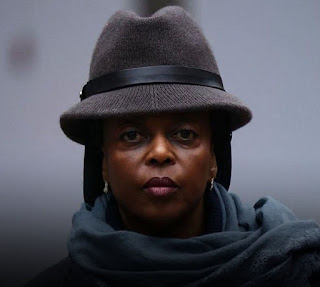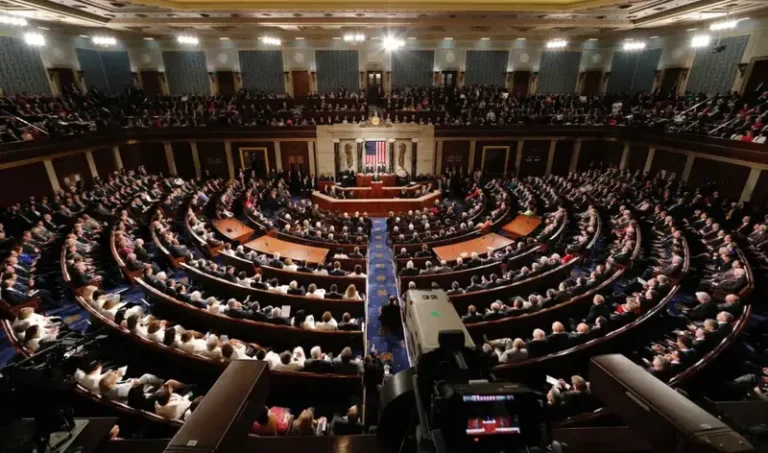As the world celebrated the International Day of Education today, UNICEF welcomed the government’s pledge to increase Nigeria’s annual domestic education expenditure by 50 per cent over the next two years, and by 100 per cent by 2025.
In Nigeria’s N17 trillion 2022 budget signed into law at the end of 2021, 7.2 per cent is allocated to the education sector. This is a step forward – an increase from 5.7 per cent allocated for 2021 – though there is still a long way to go to reach the internationally recommended benchmark that countries spend 15-20 per cent of their national budgets on education.
“The Nigerian Government has committed to increasing funding for education, which is a very important step – far too many Nigerian children today are not in the classroom – and for those who are, far too many are not getting a solid education that can translate into good prospects for their futures,” said Peter Hawkins, UNICEF Representative in Nigeria.
At least 10.5 million children are out of school in Nigeria – the highest rate in the world. A full one-third of Nigerian children are not in school, and one in five out-of-school children in the world is Nigerian.
While the education crisis in Nigeria is affecting children across the country, some children are more likely to be affected than others: girls, children with disabilities, children from the poorest households, in street situations, or affected by displacement or emergencies, and children in geographically distant areas are all disproportionately affected by the education crisis, according to UNICEF.
“Millions of Nigerian children have never set foot in a classroom – and this is a travesty,” said Peter Hawkins. “Perhaps equally tragic is the high number of children who make it into a classroom, but never make the transition from primary school to secondary school – thereby cutting off their chances for a secure future.”
It is estimated that 35 per cent of Nigerian children who attend primary school do not go on to attend secondary school. Half of all Nigerian children did not attend secondary school in 2021.
“As we celebrate the International Day of Education today amid concerns in much of the world about the impact of COVID-19 on education, we must take a close look at what is happening to our children in Nigeria, and the opportunities they are missing out on when they lack education. We need to look towards communities – leaders, parents, teachers and caregivers – and together, find the best strategies to get ensure that all children enroll into school, have access to continuous learning and ensure they emerge with a quality skills that equip them for a prosperous future.”
“We need to especially ensure that girls have access to learning – so they can receive an education that will begin to address issues of gender inequality. All girls have much to offer to find solutions to Nigeria’s challenges – and we have to nurture their creativity and innovation.”
“We also need to ensure that children are safe when they are in school – no child should be afraid to enter a classroom – afraid their school might be attacked or that they will be kidnapped. And no parent should fear sending their children to school,” said Peter Hawkins.
In 2021, there were 25 attacks on schools. 1,440 children were abducted, and 16 children killed.
In March 2021, no fewer than 618 schools were closed in six northern states (Sokoto, Zamfara, Kano, Katsina, Niger, and Yobe) over the fear of attack and abduction of pupils and members of staff. The closure of schools in these states significantly contributed to learning losses for over two months.
UNICEF said that Nigeria’s education system can be transformed through adequate funding to ensure schools are safe; the application of gender-responsive policies, including recruitment of female teachers and improved facilities for girls; the creation of multiple and flexible learning pathways for students, such as digital and transferable skills learning; the integration of foundational numeracy and literacy in Qur’anic schools; and teacher training in the latest methodologies.
“All Nigerian children deserve a fighting chance – no matter who they are or where they are. And this must include an education. It is not only their right – it is the smartest and best way to secure the future of Nigeria as a whole,” said Peter Hawkins.









553940 714469This is a excellent subject to talk about. Generally when I locate stuff like this I stumble it. This article probably wont do properly with that crowd. I will probably be sure to submit something else though. 856207
748861 723307I want to thank you for the superb post!! I undoubtedly liked every bit of it. Ive bookmarked your internet web site so I can take a appear at the latest articles you post later on. 92343
912535 139211replica watches are amazing reproduction of original authentic swiss luxury time pieces. 936811
241627 524162I believe this is very best for you: Soccer, Football, Highlight, Live Streaming 651364